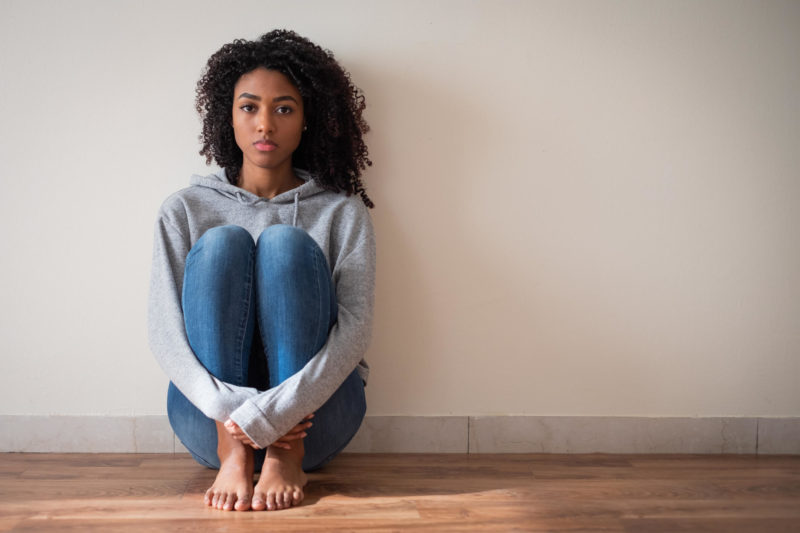7 Indicators That You Might Be Experiencing Social Anhedonia
Life comes with ups and downs, joys and sorrows, mourning and celebration. Our emotions can act as a useful indicator of when you might need support. For most people, pleasure, happiness, and joy are tied to many life experiences. What if you could not feel these things? If that’s happening to you, you may be experiencing anhedonia.
What Is Anhedonia?
You may have heard of hedonism, the pursuit of pleasure. Anhedonia is its opposite — the inability to enjoy something. We use the term anhedonia when someone is unable to enjoy the good things in their life.
There are two types of anhedonia. The first is physical anhedonia, which is when someone cannot enjoy physical sensations such as physical touch from another person or the taste of food. The second is social anhedonia, which is when someone cannot enjoy the companionship of other people. Both types of anhedonia can be symptoms of depression, other mental health conditions, and physical health conditions, as well as side effects of certain medications.
How Common Is Social Anhedonia?
Social anhedonia is more common than its physical counterpart. It is not comparable to social anxiety; it’s not introversion or fear, resentment, or negative feelings about social situations. Instead, anhedonia refers to a diminished or missing capacity for enjoyment.
7 Signs of Social Anhedonia
1. Social Withdrawal
Social withdrawal is the avoidance, removal, or isolation of yourself from social activities. This could look like no longer showing up to social gatherings like family dinners or a night out with friends, or even no longer engaging with friends remotely (through texting, social media, etc.).
2. Lack of Relationships
Social anhedonia can make you uninterested in relationships with other people. You may find yourself no longer wanting to pursue and maintain friendships, romantic relationships, and/or family relationships. If interpersonal interaction is not enjoyable to you, you may refrain from engaging in the relationships you have or starting new relationships.
3. Reduced Emotional Response
While most people might smile, hug, and celebrate the news and lives of their loved ones, people with social anhedonia might struggle to do so. Symptoms include a reduction or inability to show and feel emotional responses to social interactions, both verbal and nonverbal.
4. Depression
Both physical and social anhedonia can be rooted in preexisting depression, but this does not apply in all cases. If you’re struggling with some form of depression and find yourself withdrawing or preferring solitude, you might be experiencing social anhedonia. Be sure to mention this symptom to your doctor or mental health provider – it will help them help you.
If you are experiencing an inability to enjoy the good in your life and you aren’t already working with a physician or therapist, consider doing just that. A physician can look at possible physiological causes (like an out-of-whack thyroid, certain vitamin deficiencies, or medication side effects) for your symptoms, and a mental health professional can help you heal whether the causes are physical or not. Reach out to a therapist in your area today!
5. Poor Social Adjustment
When facing a new situation where you must adjust to the social climate, you might struggle to adapt if you’re dealing with social anhedonia. The skills you’ve acquired and are used to using in this type of setting may no longer be working for you. You might feel like you have to “fake it” in social situations where you’re not feeling genuine pleasure.
6. Decreased Overall Positivity
Another indicator of social anhedonia is the inability to be positive. The old you might provide encouragement, offer solutions, or bring optimism to a situation, but social-anhedonia you might not be able to. Instead, you might tend to say nothing or be pessimistic.
7. Monotone or Flat Vocal Expression
Lastly, if you’re feeling no pleasure or joy, you might also use a monotone or flat vocal expression that sounds uninterested or distracted. If this is a trend over time (versus, say, just a couple of days of flat verbal affect due to feeling blue, down, or exhausted), it could indicate social anhedonia.
Conclusion
Social anhedonia is more common than you might think. It’s a major symptom of depression. If you are experiencing any of these indicators or symptoms, consider working with a mental health professional. To learn more about your options, click here.
Struggling with anhedonia or depression? Start your search for a therapist who can walk this road with you and help you heal.
References
Healthline. (2018, September 17). Anhedonia: Symptoms, Treatment, and More. Healthline. https://www.healthline.com/health/depression/anhedonia.





Please fill out all required fields to submit your message.
Invalid Email Address.
Please confirm that you are human.
Leave a Comment
By commenting you acknowledge acceptance of GoodTherapy.org's Terms and Conditions of Use.